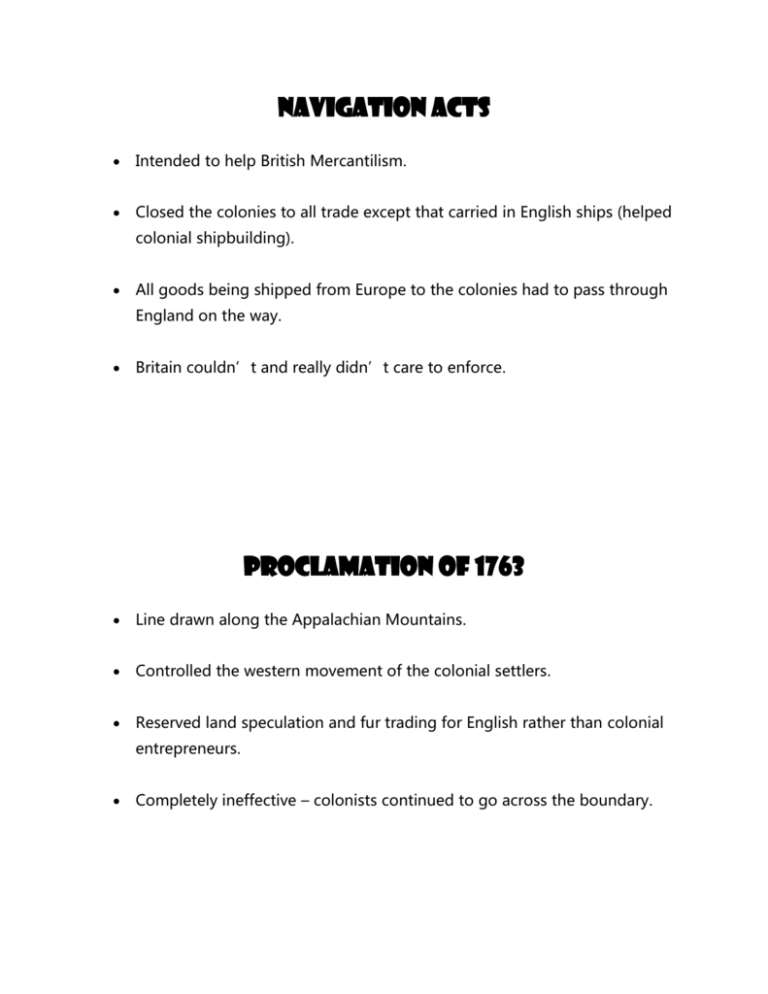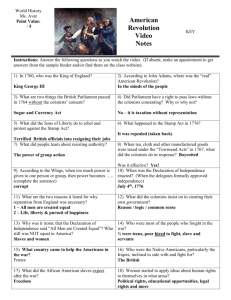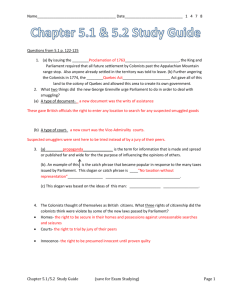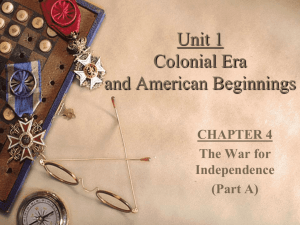File
advertisement

Navigation Acts Intended to help British Mercantilism. Closed the colonies to all trade except that carried in English ships (helped colonial shipbuilding). All goods being shipped from Europe to the colonies had to pass through England on the way. Britain couldn’t and really didn’t care to enforce. Proclamation of 1763 Line drawn along the Appalachian Mountains. Controlled the western movement of the colonial settlers. Reserved land speculation and fur trading for English rather than colonial entrepreneurs. Completely ineffective – colonists continued to go across the boundary. Sugar Act Tariffs on sugar, wine, coffee. Lowered the duty on molasses. Strengthened the enforcement of the duty on sugar. New vice-admiralty courts created in America to try accused smugglers. Currency Act Colonial assemblies had to stop issuing paper money. All money in circulation had to be collected and thrown away. Stamp Act Taxed all printed items: deeds, newspapers, almanacs, wills, etc. Evoked particular opposition from the most powerful members of the population (merchants, lawyers, etc.). Colonists considered it a direct attempt by England to make money off the colonies. Was later repealed by Parliament because London merchants protested it. Mutiny/Quartering Acts Required the colonists to provide quarters/barracks and supplies for the British troops in America. Provided for the troops stationed in North America to protect the colonists from Indian or French attacks. New York’s and Massachusetts’s assemblies refused to cooperate with Parliament on this act because it was an assault in their liberties. Declaratory Act Colonies clearly subordinate to Parliament and England. Parliament could pass laws for the colonies “in all cases whatsoever.” Most Americans paid little attention to this law because they were too busy celebrating the repeal of the Stamp Act. Passed the same day Parliament repealed the Stamp Act. Townshend Duties Taxed lead, paint, paper, tea, and glass. Repealed by Prime Minister Lord North except the tax on tea. British military sets up in Boston, ultimately leading to the Boston Massacre. Parliament thought colonists would accept this law because it was a tax on external transactions. Tea Act Seen by colonists as a dangerous monopoly on English goods; it put colonial merchants at a grave disadvantage. This commodity was actually cheaper after this tax. The Boston Tea Party happened because people did not like this tax. Gave the British East India Company an unfair advantage. Coercive/Intolerable Acts Closed Boston’s harbor. Reduced colonial self-government and permitted royal officers to be tried in other colonies or in England when accused of crimes. Provided for the quartering of troops in the colonists’ barns and empty houses. These laws were clearly meant to punish the colonists in Massachusetts.











